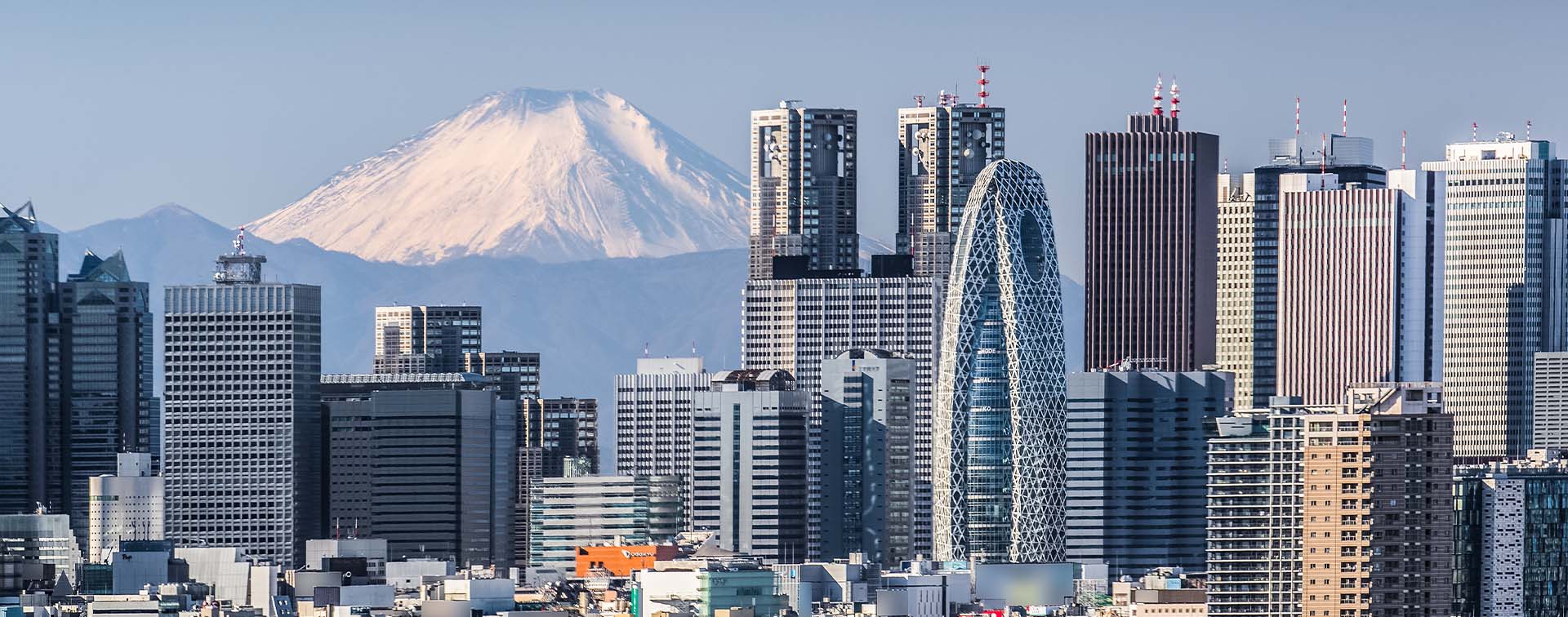
Curtis S. Chin is a former US Ambassador to the Asian Development Bank, the inaugural Asia Fellow of the Milken Institute, and managing director of advisory firm RiverPeak Group, LLC.
More than two years into the pandemic, the story of East Asia’s economic powerhouses is increasingly one of stark contrasts and two diverging approaches. On one side of the pandemic travel divide, closed borders and stringent quarantine requirements marked the start of the Year of the Tiger in mainland China and Hong Kong (SAR China). Elsewhere in much of East Asia signs of change offered up hope to global travelers and investors as the lunar new year arrived this February — in evolving attitudes towards both living with the coronavirus and strict travel restrictions.
Shared longer-term goals of attracting both robust foreign investment and the globally mobile may remain across the region, including in its largest economies. Yet it is Japan — the world’s third-largest and Asia’s second-largest economy — not China — the world’s second-largest economy after the USA — that is rethinking its near-term border controls and resistance to immigration. Taiwan and South Korea are already charting a cautious path forward in the second quarter of 2022.
In early 2022, with mainland China’s borders still closed for the most part to international travel due to coronavirus fears, Beijing’s focus on a policy of “zero Covid” was on full display at the Winter Olympics. A ‘Covid bubble’ was put in place to help separate some 15,000 international Olympics participants from contact with the general population of more than 21 million in China’s capital city.
In contrast, trips by business executives and would-be tourists have been stymied by China’s stringent and effective controls, which have limited the domestic spread of the coronavirus. Tens of thousands of international students also remain unable to return to or begin studies in China — once an increasingly attractive destination for international higher education students.
While travel restrictions might well upend global mobility into mainland China in the near-term, inward foreign investment flows underscore the continued attractiveness of the China market. According to Chinese Ministry of Commerce data, foreign direct investment inflows hit a record USD 173.48 billion in 2021, a 14.9% surge from 2020 despite the pandemic.
In Hong Kong, protests, then uncertainties over the implications of a new “national security law” and a now worsening Covid crisis have understandably and significantly impacted inward global mobility. In March, Hong Kong recorded the world’s highest fatality rate for the coronavirus, mostly among under-vaccinated elderly residents.
Reports of expatriates and Hong Kong citizens seeking to leave continue, as the government has pursued a “dynamic zero Covid policy” that at one point envisioned mandatory testing of the entire population. Families had despaired that Covid rules might have even required separation of parents from their children. By mid-March, the Hong Kong government had offered up some hope that stringent controls would be slightly relaxed, including the end of flight bans from nine nations and reduced quarantine for returning residents.
The January 2022 business sentiment survey from the American Chamber of Commerce in Hong Kong, found that travel restrictions weigh heavily on sentiment about living in Hong Kong, from both a company and a personal perspective. More than 40% of respondents said they were more likely to leave the city from a personal perspective, and more than 25% of companies say they are more likely to leave Hong Kong.
An array of issues weigh down overall sentiment, especially travel measures seen as increasingly out of step with international practice, fraught US–China relations, and the continuing challenges of the pandemic. Other reports suggest that some high-net-worth individuals who are politically exposed or who disagree significantly with the Hong Kong and mainland China governments had begun moving their assets offshore even before the pandemic.
With mainland China and Hong Kong (SAR China) largely closed off, an opportunity emerges for two ‘Asian Tigers.’ South Korea and Taiwan are set to attract foreign investment, high-quality talent, and the globally mobile seeking to relocate to East Asia.
Early in the pandemic, Taiwan’s President Tsai Ing-wen reaffirmed her commitment to attracting international talent to transform Taiwan’s workforce. That commitment continues with a ‘Gold Card’ program seeing a significant rise in interest during the pandemic. The program seeks to attract and retain international professionals from fields including economy, science and technology, culture and arts, and finance.
The Government of Taiwan reported some 3,623 valid Gold Cards were in place as of December 2021, a significant improvement from the 600 issued in 2019. Although there are no official figures on permanent departures, some Hong Kongers have voted with their feet and headed east to Taiwan.
2021 also saw high-profile immigration from Hong Kong’s entertainment industry to the benefit of Taiwan. Celebrated actor Anthony Wong confirmed that he had obtained Taiwanese residency. Among other prominent personalities who left Hong Kong for Taiwan was lyricist, poet, and ‘godfather of Cantonese pop’ Albert Leung. Taiwan continues to see the benefits of the attractiveness of its vibrant economy and entertainment industries, as well as its embracing of creativity, freedom of speech, and expression.
Despite the continuing challenges of Covid-19 spikes, South Korea continues to move forward. Foreign direct investment hit an all-time high of nearly USD 30 billion in 2021 despite falling globally during the pandemic. One key contributing factor, according to South Korean President Moon Jae-in, has been incentives for international investors. The nation’s tax exemptions and reduced rent, as well as regulatory improvements, are key drivers.
To build on this success, the Government of South Korea has promised to strengthen communication with foreign investors and pledged to invest almost USD 70 million into foreign-invested businesses. This is on top of more than USD 204 million that the capital city of Seoul has committed to attracting foreign-invested firms. The goal of enticing more than 100 foreign financial institutions to Seoul should be of great interest to the globally mobile.
South Korea also has announced a new fast-track visa system and a series of new visas to lure science, technology, and arts talent. One visa program, dubbed the “Hallyu” or “Korean Wave” visa, aims to further cement South Korea’s status as a soft power juggernaut. The initiative is designed to support the entry of foreigners eager to learn about the Korean culture and entertainment industry and offers visitors a chance to achieve their K-Pop or K-drama dreams.

Declining foreign direct investment performance in Japan, in marked contrast to the situation in South Korea, could well be a factor in helping bring change to enduring Japanese resistance to inward immigration. The country’s foreign direct investment declined by 30% to USD 10 billion in 2020, while from January to August 2021 it decreased by 64.4% compared to the same period in 2020.
By mid-2021, the administration of newly elected Japanese Prime Minister Fumio Kishida had made strategic pivots on immigration, foreign investment, and foreign workforce retention. Internal business pressure has mounted in Japan to re-open its borders as the pandemic and travel restrictions have worsened an already acute labor shortage. In a major policy shift in a country long relatively closed to immigrants, Japan is looking to allow foreigners in certain blue-collar jobs to stay indefinitely starting as early as the 2022 fiscal year.
The Kishida administration also reportedly has plans to simplify travel, allowing easier entry for high-net-worth individuals to Japan via private jet and superyachts. The move reportedly comes as the government hopes such affluent travelers will accelerate a post-pandemic economic recovery.
To bolster an International Financial City Initiative launched in 2021, Japan has adopted two licensing exemptions aimed at assisting foreign asset managers who intend to open offices in Japan. The exemptions are intended to provide meaningful access to Japanese investor communities.
Tokyo Governor Yuriko Koike also has pledged financial support to foster the city as an international financial hub. Governor Koike recently shared that Tokyo will invest JPY 6 billion (USD 52.2 million) in 2022 to establish a new fund for startups. Another JPY 10 billion (USD 86.9 million) will be allocated to a social impact investment fund targeting wellness and other fields, to create new financial flows.
Whether in the increasingly inward-looking mainland of China and Hong Kong (SAR China), or the three East Asian economies of Taiwan, South Korea, and Japan, the path forward remains far from certain. The Year of the Tiger may well bring further new Covid variants and lockdowns, shutting down supply chains and global mobility yet again. China and Hong Kong could well avoid the worst of the coronavirus’s direct impact when it comes to deaths.
Yet, after two years of battling the pandemic, the region may find that maintaining strict, vigorous pandemic protocols is not sustainable in the long term. Time will tell.
Still, a golden opportunity remains for East Asia to step up its game — to craft meaningful and beneficial policies and incentives and attract the globally mobile once again to one of the most dynamic regions in the world.